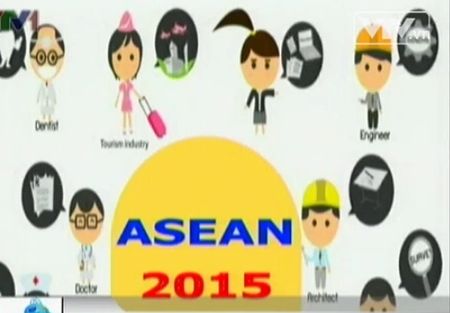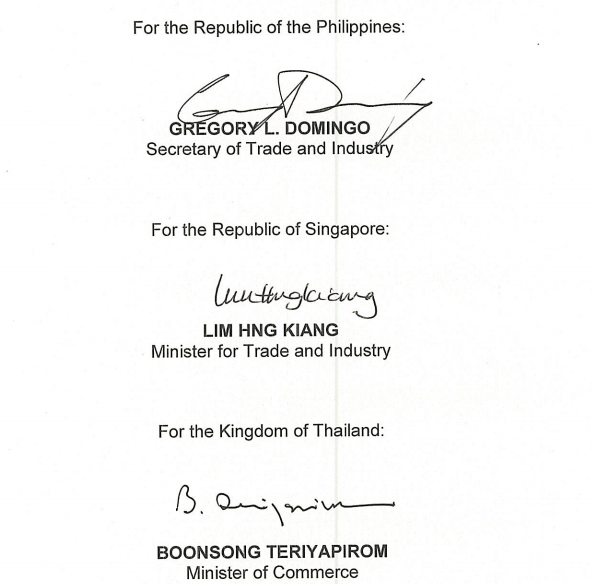Have Singaporeans Woken Up to the Implications of the ASEAN Agreement on Free Movement of Labour?
 Some Singaporeans might think that the PAP Government has gone a long way to tighten the influx of low-cost foreign labour into Singapore by raising foreign worker levies and lowering the ratio of foreign workers to locals.
Some Singaporeans might think that the PAP Government has gone a long way to tighten the influx of low-cost foreign labour into Singapore by raising foreign worker levies and lowering the ratio of foreign workers to locals.
However there are still glaring loopholes. For example the minimum salary for obtaining an Employment Pass is still set too low at only $3300 a month for younger workers. There are no restrictions on the number of Employment Passes. There have also been numerous cases of abuse of even these low thresholds by falsification of salary levels by mutual agreement between employers and foreign workers and also of fake employment of Singaporeans, often just for CPF contributions, to pad payrolls and allow companies to employ more low-cost foreign workers.There is no good economic reason to give an extra advantage to young workers whom employers are likely to favour anyway as they come without families and are typically prepared to work longer hours with greater flexibility.
But it is typical of the PAP’ desire to choose the easiest route to grow the Singapore economy by just increasing the population rather than productivity and using cheaper foreign workers to cut labour costs. It is not in the economic interest of Singaporeans who do not own businesses employing foreign labour. This is probably all those below the top 20% of the income distribution.
Voters in democratic countries have roundly rejected governments that have implemented much milder versions of the PAP’s policies. A good example is the UK where a miscalculation by the then Labour Government in 2004 as to how many Eastern European workers would come to the UK when these countries joined the EU led to the Labour Party’s defeat in 2010. This was despite far greater safeguards being in place in the UK such as a minimum wage, age, sex and race discrimination laws and greater regulation of hours and working conditions. Continuing distrust of Labour over immigration probably contributed to their disastrous showing in the recent UK General Election.
Yet the PAP have had no problem getting re-elected and implementing these policies. This is only partly because of the way they have instilled a climate of fear, gerrymandered the electoral system, and ensured that only their point of view gets across. For the majority of Singaporeans, the phrase “turkeys voting for Christmas” comes to mind. 2011 brought signs that the electorate had finally begun to realise that their economic interests and those of the PAP elites and business owners were different but this did not stop the PAP introducing and passing the Population White Paper in 2013. This was about planning for a population of 6.9 million by 2030. Read my critique here. While sold to Singaporeans as 6.9 million being very much an upper bound, the views of the former CEO of HDB, Liu Thai Ker, are that Singapore can easily support a population of 10 million or even more.
My guess is that the views of the majority of the PAP elite are very much aligned with Liu’s as it will allow an indefinite extension of the Singapore model despite that it is not in the economic interests of the resident labour force. As far as population explosions go, we probably “ain’t seen nothing yet”. This is not just scaremongering but based on the potential impact of the ASEAN Economic Community Blueprint.
Few of you have perhaps realised the implications of the ASEAN Agreement on the Movement of Natural Persons which was signed by Minister Lim Hng Kiang in November 2012 and has been ratified by Singapore. This will be implemented in December this year. This is designed to bring about a free market in skilled labour and remove barriers to movement between member countries.
 While permanent rights to work in other member countries are excluded the fact that free movement is extended to Contractual Service Suppliers and Intra-Corporate Transferees means that the bar to stop businesses bringing in cheaper PMETs from other ASEAN countries is set very low.
While permanent rights to work in other member countries are excluded the fact that free movement is extended to Contractual Service Suppliers and Intra-Corporate Transferees means that the bar to stop businesses bringing in cheaper PMETs from other ASEAN countries is set very low.
In 2014 ASEAN members endorsed the ASEAN Qualification Reference Framework (AQRF), which provides for mutual recognition of qualifications. To quote a recent article: Mutual recognition arrangements (MRAs) are in place for eight professional categories: engineers, nurses, surveying service providers, architects, accounting service providers, medical practitioners, dental practitioners, and tourism professionals. While they only affect less than 2 per cent of total ASEAN employment, MRAs are a fundamental tool in promoting regional labour mobility. They help ASEAN citizens acquire the skills and experience to gain certification in their own country and allow them to work in other AEC member countries. However, implementing the MRAs is difficult, as education and testing requirements vary widely across the region.
By agreeing to this, the PAP Government is putting your expensive and hard-earned qualifications on a par with third-rate institutions or worse in other ASEAN countries. We have all read about the scandal of the number of fake degree and degree mill holders who are working in Singapore including the notorious case of Nisha Padmanabhan. While IDA denied that her fake qualification was a requirement for her job, the fact is that it probably got her C.V. to the top of the pile. There is also the recent expose by the New York Times of the fake degree factory in Pakistan though that will have to be the subject of a separate blog.
The PAP clearly feels that growing an economy based on innovation and creativity is too difficult and moreover may threaten their control. Far easier to orientate the economy towards lower-skill services and industries where the quality of degree qualifications are not essential. Thus the recent barrage of pronouncements by ministers like Khaw Boon Wan that degrees are not “vital for success” and may be a waste of money.
We can be certain that if Singaporeans let them the PAP will be among the most enthusiastic adopters of a free market in skilled labour. This is just the thin end of the wedge of course. After that there will be pressure on Singapore to agree to free movement of unskilled labour. The previously cited article goes on to say that “Eventually, ASEAN leaders should expand the AEC beyond skilled labour to include proper management of unskilled labour movement.”
A free market in labour between countries with such differing income levels would be unprecedented. In the example of the UK, relative incomes in the UK were only about four times the Polish level. By comparison the GDP per capita (which is admittedly a flawed measure of income levels) of the Philippines, whose workers probably pose the greatest threat to Singaporean PMET and service sector jobs, is one-twentieth of Singapore’s level. Indonesia’s is only slightly higher than the Philippines while both Vietnam and Myanmar are much lower. The population of the Philippines is close to 100 million so even a small movement of their tertiary-educated and professionally qualified workers would have big implications for the wages and salaries of Singaporeans at the same level. More than 500,000 Filipinos graduate from college every year. That number will surely rise steeply in the next few years. By contrast Singapore only graduates about 16,000 university students and 24,000 polytechnic students every year so about a tenth of the Philippines level.
It would be unprecedented for a rich country like Singapore to ignore the majority of its citizens’ economic interests and sign up to an agreement on free movement of labour without even basic protections for its workers but that is what the PAP Government are doing. While the US, Canada and Mexico signed up to the North American Free Trade Agreement in 1994 there has only been modest progress towards free movement of labour between Canada/USA and Mexico even for professionals.
We will have to wait and see if Singaporeans will stand for this or whether they will finally decide enough is enough. Turkeys do not get the vote but Singaporeans do. In the absence of change Singaporean PMETs will be caught between the rock of automation and the hard place of the ASEAN Economic Community. And we have no protections in the form of minimum wage, discrimination legislation or regulation of working hours and conditions. It will be an interesting experiment.



I have a few words to add: The PAP cannot be trusted, and has been so for a long, long time – 2 to 3 decades. The PAP is a self-serving political party, meaning, that its governing policies are/have been mainly for the benefit of their individual members and/or their cronies, not for Singaporeans as a whoke. And for the good of Singapore and Singaporeans, the PAP has to be booted out of the main political arena, and the sooner this happens, the better for us all.
LikeLike